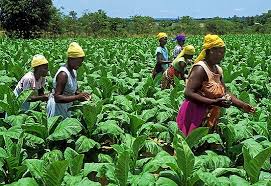APA-Dakar (Senegal) A consortium of Senegalese civil society organizations, on Thursday in Dakar, launched a parafiscal taxation campaign on tobacco products.
Tobacco costs Senegal 122 billion CFA francs, including 74 billion CFA francs to treat smoking-related illnesses. At the same time, the country of Teranga loses 48 billion f cfa a year through absenteeism from work and patient deaths, while revenues from the tobacco industry amount to only 20 billion CFA francs a year.
With this in mind, a consortium of civil society organizations, led by the Pan-African Institute for Citizenship, Consumers and Development (CICODEV Afrique), is campaigning for the introduction of a parafiscal tax on tobacco. The money collected is to be used to finance the fight against non-communicable diseases (NCDs), which are responsible for 45% of deaths in Senegal, representing the largest item of expenditure with an annual average of 233.6 billion CFA francs.
Since May 2022, civil society actors working in the field of tobacco control, including the Pan-African Institute for Citizenship, Consumers and Development (CICODEV Afrique), the “PREVENIR” association, the ‘Ligue Senegalaise contre le Tabac’ (Senegalese Anti-Tobacco League, LISTAB), DB Consulting, with the support of our partners Campaign for Tobacco Free Kids (CTFK), Management Sciences for Health (MSH) and Global Alliance for Tobacco Control (GATC) are leading the call for the introduction of a parafiscal tax on tobacco to finance tobacco control and Non-Communicable Diseases (NCDs),” said Amadou Kanoute, Executive Director of CICODEV Afrique and spokesperson for the Consortium.
According to him, the 2022 World Health Organization (WHO) report “shockingly reveals that NCDs cause 45 percent of deaths in Senegal. At the same time, the National Health Accounts (2017-2021) show us that NCD-related expenditure is estimated at 233 billion F CFA, 3/4 of which is borne by households. This is the right place here to recall that tobacco is one of the risk factors for NCDs, which are decimating our population at an alarming rate.”
The 2017 report by the ‘Consortium pour la Recherche Economique et Sociale’ (Consortium for Economic and social Research, CRES) reveals that the health costs of treating smoking-related illnesses are estimated at 122 billion F CFA per year, while the amount of revenue collected by the state amounts to just 24 billion F CFA per year, a dry loss of 98 billion F CFA per year.
“In Senegal, the level of taxation on tobacco products stands at 23 percent of the price, according to the World Bank’s report on the economic situation in 2023, while the WHO sets taxation at 70 percent of the price of products. As you’ll see, there’s still plenty of room for improvement. And that’s the relevance of our advocacy for the adoption of a parafiscal tax on tobacco to finance NCDs and tobacco control alongside the excise tax as recommended by the 2017 ECOWAS Directive,” Mr. Kanoute went on to say.
In his opinion, “under our skies, the parafiscal tax is by no means unknown, the State of Senegal has adopted in many cases, several parafiscal taxes to finance certain sectors. Cement, for example, was taxed to finance the 100,000-housing unit programme, while premium fuel and diesel were taxed to finance road maintenance under FERA. The parafiscal tax on petroleum products, which financed the TAAKAL plan in 2011, adds to this list, which is far from exhaustive.
“In the sub-region, examples abound: Côte d’Ivoire has instituted a parafiscal tax on tobacco to finance tobacco control, the fight against AIDS and sport. Mauritania has also introduced a parafiscal tax on tobacco to finance cancer research and the promotion of culture and sport. The wish of the Bajenu Gox, NCD patients’ associations and tobacco control stakeholders, present here today, is the adoption of a parafiscal tax on tobacco to finance NCDs and tobacco control in Senegal. All our hopes rest on the diligence of this highly symbolic request, which will be of great benefit to our beloved nation,” Amadou Kanoute concluded.
TE/fss/abj/APA


